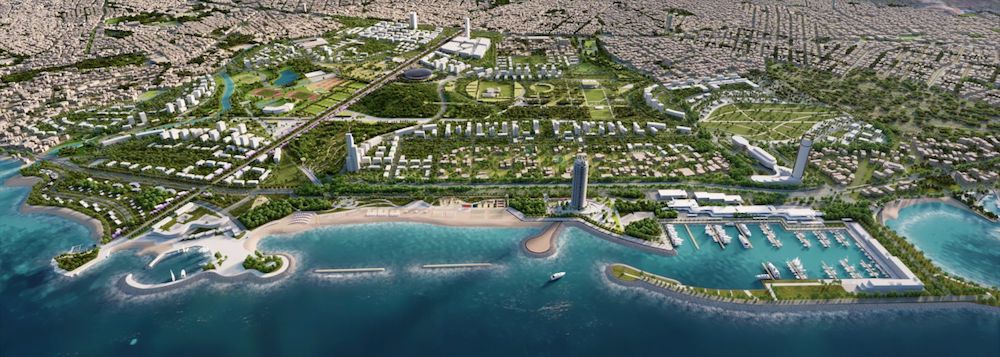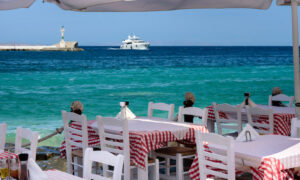The “Athens Riviera” is what we call the truly stunning 70-kilometer coastal stretch south of the Greek capital of Athens. It begins in the port town of Piraeus (about 16 kilometers from downtown) and extends to Cape Sounion (home to the magnificent Temple of Poseidon), located at the southernmost tip of the Attica peninsula.
Right now, this area has some lovely beaches and bits and pieces of well thought-out human intervention But by and large, the Athens Riviera has been abandoned to the whims of small and medium business owners, many of whom have little to no regard for the local environment, the overall aesthetic or the laws governing what can and can’t be done on the coastline and on the beaches. Some have tried to block public access to the beaches with ugly, noisy beach bars, which place obscenely overpriced sun beds the whole way down to the sea, for instance.
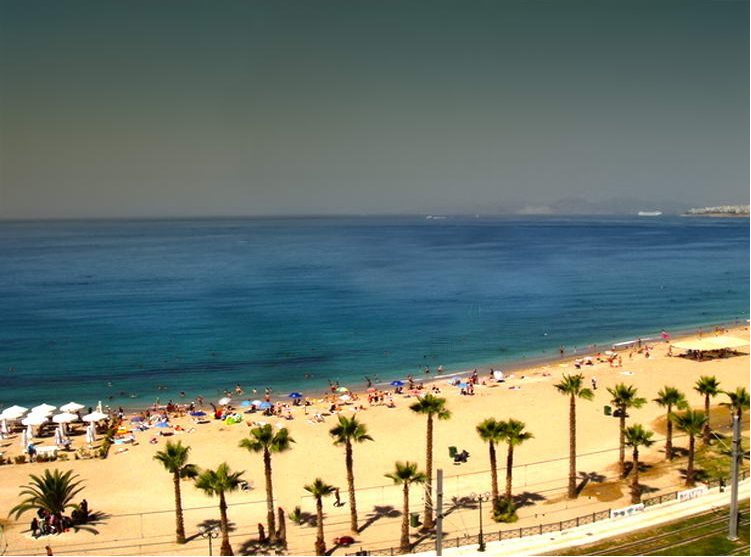
The area already has various hotels, a campsite, beach clubs, restaurants, tavernas, water sports
facilities, a brackish-water natural spa, a family-friendly farm and the aforementioned world-famous Temple of Poseidon, to name but a few. The small and sweet town of Lavrio is worth a visit for the simplicity-seekers and, for those who prefer a more Miami-like vibe, glitzy Glyfada is the place to be, with its fast cars, upscale restaurants and swanky nightclubs.
The Stavros Niarchos Foundation Cultural Center is gem of the area and a huge favorite for locals and visitors alike.
The impact of climate change
Many would say the existing businesses on this stretch of coastline are already more than the natural environment and local infrastructure can support safely and in an environmentally- friendly manner.
The area, like many coastal regions, has been – and is expected to be – even more significantly impacted by climate change and critics say that very little is being done to mitigate its current effects and even less is being done to prepare for future ones.
In fact, the entire area of Athens and its surrounds are in lists of top cities expected to experience the worst drought and heat waves.
In recent decades, Athenian summers have become much longer and unbearably hot for many.
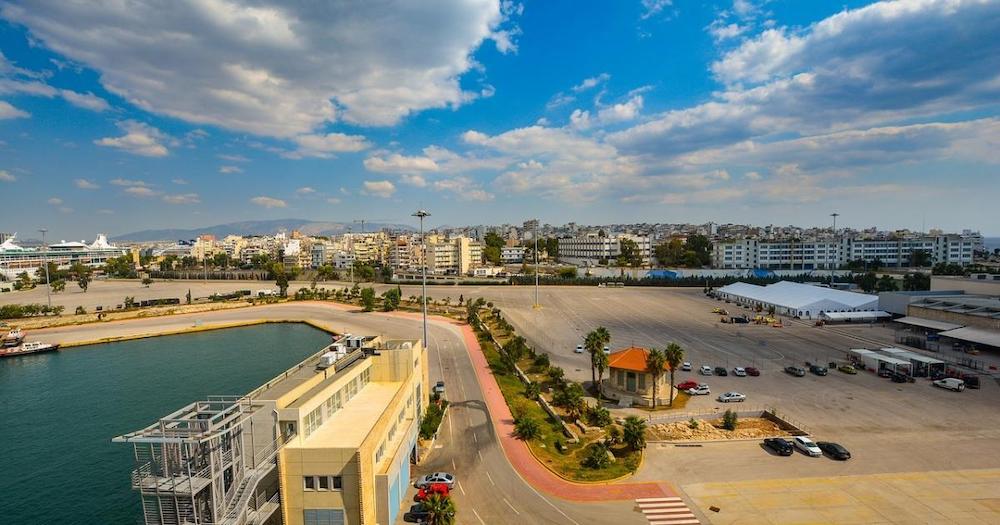
The Riviera Project
The Riviera project is set to attract about a million extra visitors per year to a country which is already strained under the need for air con, fresh water and cool, green public spaces. Some wonder how that will affect the quality of life of locals. They are also questioning what visitors will do during those long hot summer days when beach times have become limited to early morning and evening for many.
And we mustn’t forget that the seawater quality of the area has many times been questioned, whether due to dangerous bacteria found from insufficiently-treated sewage, industrial waste or the ghosts of an oil spill from not so long ago and its ensuing clean-up, which was criticized by many.*
Since the 1950s, there has been a hope in some circles that this astoundingly beautiful coastline would be commercialized in ways that could rival the French Riviera. Due to Greece’s political and economic instability, this was deemed by some to be nothing more than a pipe dream for many years.
Now, decades later, huge projects are underway in the Athens Riviera area: ultra-luxury skyscraper residences and offices, casinos, private clubs, a revamped waterfront, high-end shopping malls, exclusive restaurants and premium recreational facilities. Many of the plans are impressive and they also help Greece to fulfill its bailout promises of privatization, as the public sector was deemed to be wasteful.
The Greek Riviera, for whom?
The question on many people’s minds in a country with some of the European Union’s lowest wages and highest inflation rates is, “Will locals be able to live in and enjoy this soon to be very costly area anymore or will they only be able to work there?”
There are whole swathes of land and old buildings (like the old Athens airport) in the vicinity which everyone agrees should be cleaned up and either put to use or greened for environmental purposes, namely to help keep rising temperatures down.
One of the new projects which has already been partially completed is the Ellinikon Experience Park. Visitors say that it is nicely done in general but better enjoyed in later afternoon or early evening as it is less green than it should be in a place where significant shade is necessary for most of the year.
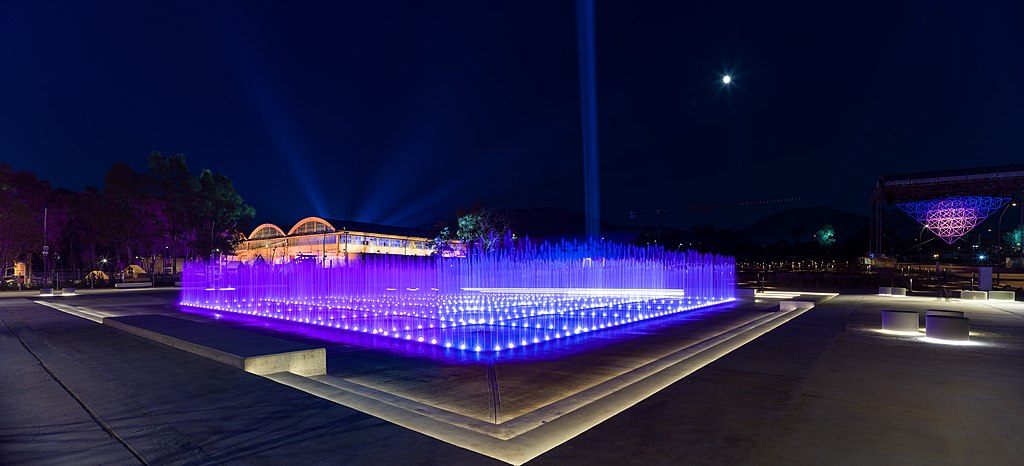
Investors and developers are giddy with delight as permits are being issued and plans are moving forward after many delays. On the other hand, we have skeptics and detractors shaking their heads with furrowed brows. Greece has been known for its high levels of unemployment and there will certainly be some job opportunities for locals in these businesses, but most would agree that the top-paying jobs will generally go to expats from the countries from which the investments are flowing.
Young people in Greece are generally quite highly educated and many parents are sad to see their youths being pushed towards notoriously low-paying resort or restaurant work. Some estimate about 10,000 local jobs will be created.
And what about keeping the local culture of the Riviera intact?
Well, many of the big investors and developers have made sure to reference Greek mythology and Mediterranean themes in their extravagant designs.
But make no mistake: There is nothing less traditionally Greek than an all-inclusive luxury resort with hundreds of rooms, a lightless casino or a premier convention center.
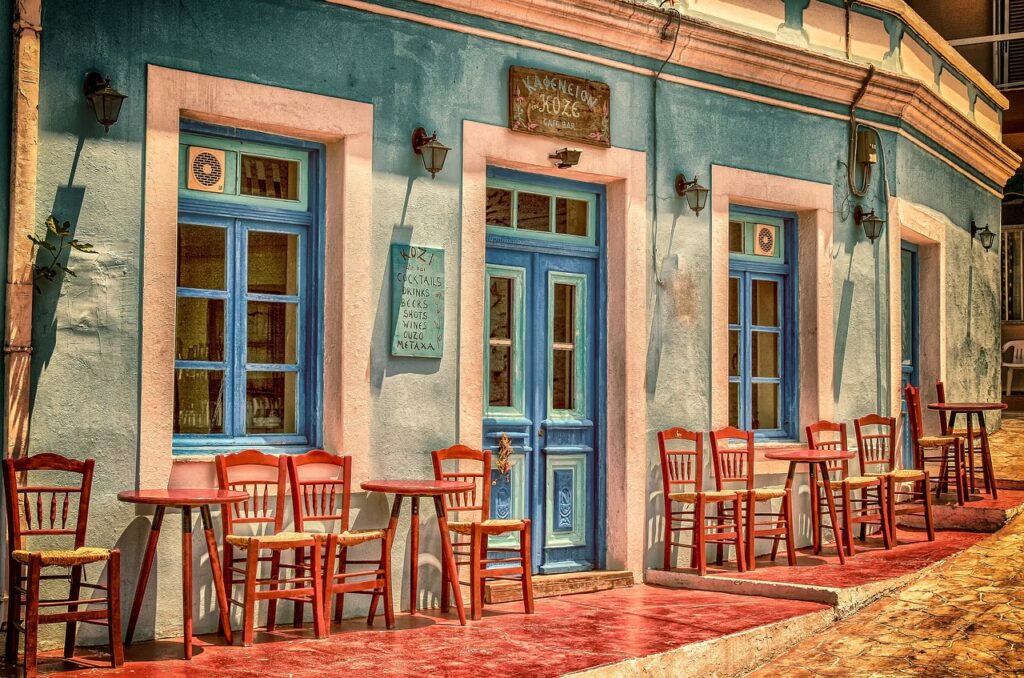
Countless visitors speak of falling in love with the Greece of rapidly-disappearing yore; humble seaside, family-run tavernas with their classic blue-painted wooden chairs, serving fresh-boiled mountain greens, hand-cut fried potatoes and a nicely-grilled catch of the day, a basic hotel room with a small wrought iron balcony, simple wooden furniture and crisp sun-dried white sheets.
While there is surely an appetite (or one will be created) for a Greek beach and shopping/ convention/ casino experience, there are those who will intentionally choose to support the small local businesses of the country’s many islands or coastal areas which still manage to retain a more authentic feel in these corporate times.
As with anything else, this project will certainly have its good and bad points, many of which won’t be seen clearly until we have some hindsight on the matter. My current hope is that we as a nation manage to benefit from it and manage to shape it in a way that respectfully embraces the current desires and lifestyle of both locals and visitors.
*In 2017 a 45-year-old vessel carrying approximately 2,500 tons of fuel sank off the coast of Salamis Island, which is opposite Piraeus and the Attica peninsula. The response was not the timeliest and was considered botched by many. A lot of the oil washed ashore the Athens Riviera. At some point chemical dispersants were used to clean up the spill and many environmental groups have claimed that these fluids have made the sea in the area unsafe for fishing and recreation for years to come.
––––––––––
Read more about Athens here in Dispatches’ archives.
Read more from Christina here.
A Pittsburgher by birth, Christina T. Hudson is also half Greek and has – so far – spent most of her life in Athens, the chaotic but captivating capital city of Greece.


